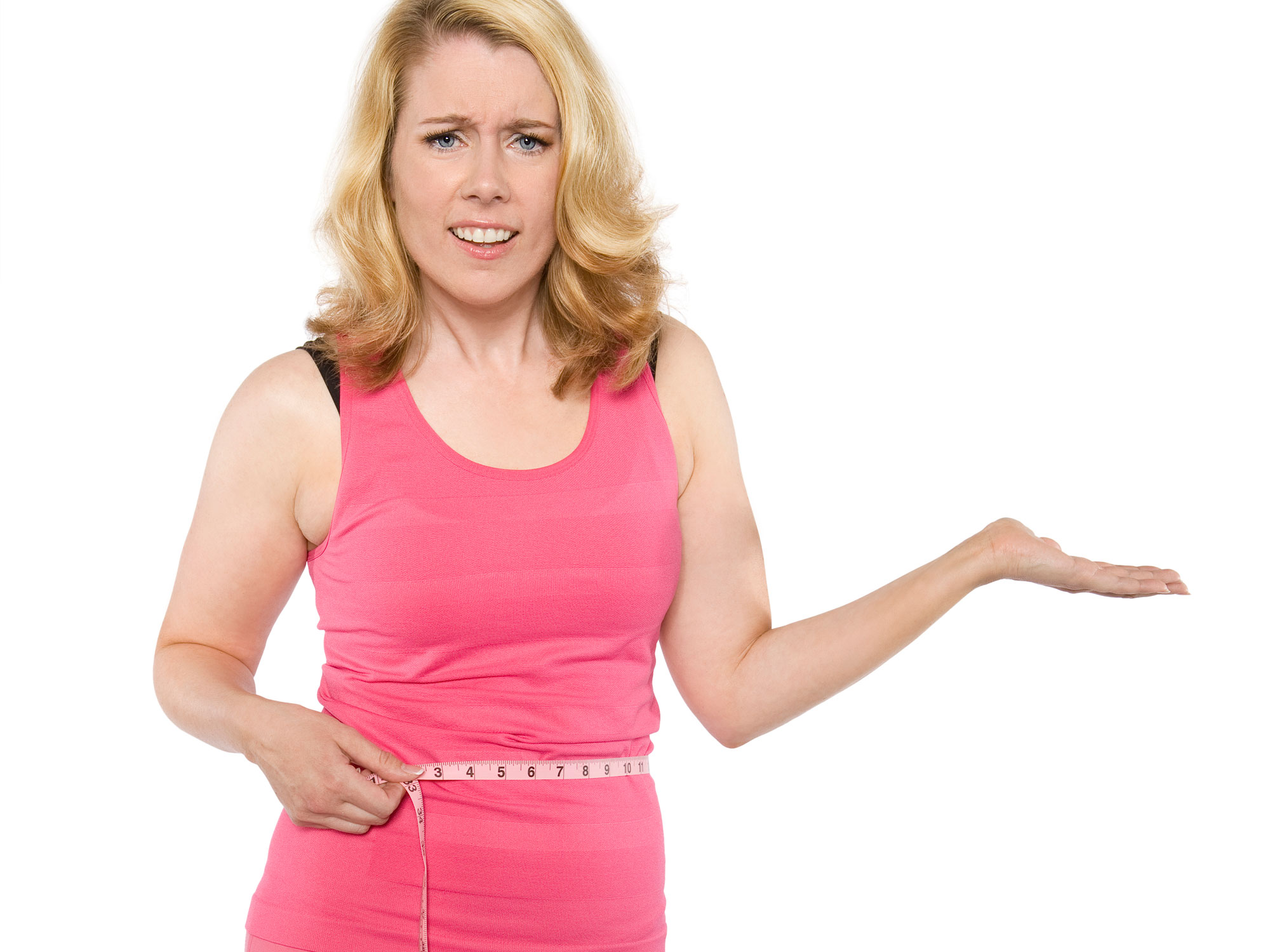Get Easy Health Digest™ in your inbox and don’t miss a thing when you subscribe today. Plus, get the free bonus report, Mother Nature’s Tips, Tricks and Remedies for Cholesterol, Blood Pressure & Blood Sugar as my way of saying welcome to the community!
What’s really behind post-menopausal belly bloat?

Isn’t menopause hard enough between the hot flashes, night sweats, insomnia, utter fatigue, irritability and low sex drive without adding bloating to the mix?
But, the truth is that for many of us, moving into menopause also means ending up with fullness in our abdomens and jeans we just can’t button anymore.
So, why do menopause and bloating go hand-in-hand?
One study has the answer…
Your hormones and water retention
Scientists reporting to the American Physiological Society discovered that female rats with their ovaries removed (in other words – ones that were surgically put into menopause) actually produced less urine compared with female rats with ovaries.
They also found that the menopausal rats had more AQP2 channels in their kidneys (ones that reabsorb water, keeping you from getting rid of excess fluid) compared with female rats with ovaries.
Why was this?
Changes in sex hormone levels can affect your kidneys’ water handling, and the reduced level of hormones during menopause may explain the greater water retention.
That’s because estradiol (the female sex hormone that is the predominant estrogen throughout your reproductive years) inhibits AQP2.
In other words, the lower your estrogen levels – like in menopause – the higher the number of AQP2 channels and the higher your water retention.
Boosting estrogen levels to relieve bloating
This means that finding ways to raise your estrogen levels during menopause could help provide relief from the bloat.
But, don’t run out and ask your doctor for hormone replacement therapy just yet!
The most widely prescribed estrogen prescription is Premarin and while your doctor may call it “natural”, it is far from natural for your body.
Premarin is actually made from the urine of pregnant horses – hardly something you want to put into your body every day.
Luckily, there are natural ways to elevate your estrogen levels.
Here are a few ideas to increase the estrogen in your body:
- Stop smoking – Smoking lowers your estrogen levels. So, if you’re a smoker, the time to quit is now.
- Eat soy – Soy contains isoflavones, which are compounds that mimic estrogen. Good sources include: tofu, edamame, miso and tempeh. Always choose non-GMO soy and soy products.
- Take DHEA – DHEA is a precursor to estrogen (something your body needs to make the hormone). Add a good quality DHEA supplement to your daily routing to boost your estrogen levels.
- Follow a plant-based diet – Many plants contain high quantities of phytoestrogens that can work like an estrogen supplement for your body. Foods to choose include: legumes, like peas, pinto and lima beans, cruciferous vegetables, like broccoli and cauliflower, whole grains and fruits, such as prunes and apricots.
- Add some flax seeds – Flax seeds are another great source of those phytoestrogens. Try adding one-half cup of ground flax seeds to your smoothie, yogurt or oatmeal each day.
- Grab a boron supplement – Boron supplementation has been shown to elevate estrogen levels in healthy postmenopausal women. The upper limit for boron for adults is 20 mg/day.
Menopause may be inevitable but the water retention and bloating that come along with it don’t have to be. Use the tips above to boost your estrogen levels and beat the bloat.
Sources:
- Why the bloating during menopause? Blame the hormones or the lack of them — American Physiological Society (APS)
- What is Premarin(e)? — Premarin.org
- Dietary Boron and Hormone Replacement Therapy as Risk Factors for Lung Cancer in Women — American Journal of Epidemiology
- Dietary Reference Intakes for Vitamin A, Vitamin K, Arsenic, Boron, Chromium, Copper, Iodine, Iron, Manganese, Molybdenum, Nickel, Silver, Vanadium, and Zinc — Dietary Reference Intakes (DRIs)













